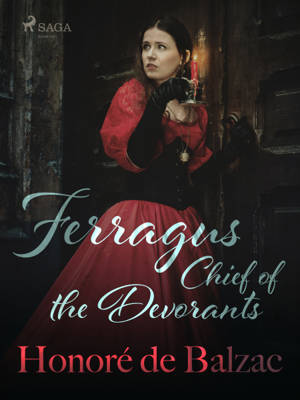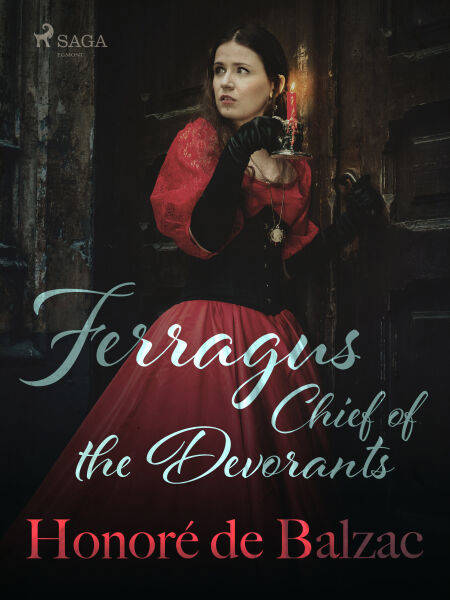
Bedankt voor het vertrouwen het afgelopen jaar! Om jou te bedanken bieden we GRATIS verzending (in België) aan op alles gedurende de hele maand januari.
- Afhalen na 1 uur in een winkel met voorraad
- In januari gratis thuislevering in België
- Ruim aanbod met 7 miljoen producten
Bedankt voor het vertrouwen het afgelopen jaar! Om jou te bedanken bieden we GRATIS verzending (in België) aan op alles gedurende de hele maand januari.
- Afhalen na 1 uur in een winkel met voorraad
- In januari gratis thuislevering in België
- Ruim aanbod met 7 miljoen producten
Zoeken
€ 5,99
+ 5 punten
Uitvoering
Omschrijving
In 'Ferragus, Chief of the Devorants' Balzac skillfully traces a dazzling panorama of 19th century Parisian streets and vividly invokes a sparkling menagerie of characters in ultra-fine detail.
A young cavalry officer strolls down these very streets when he spots a beautiful lady in the company of an ill-reputed man. The man is veiled in an impenetrable cloak of secrecy, which also raises questions about the woman at his side, transforming the novel into a thrilling criminal escapade.
Flooded with murders, prison escapees, family secrets, and tragic endings, 'Ferragus, Chief of the Devorants' is a darkly ironic albeit sublime reflection of the human condition and the ultimate price of deceit.
Recommended for readers who are fascinated by the forays into the human soul and conscience deliberated in Dostoyevsky's 'Crime and Punishment' and Gogol's 'Dead Souls'. Also, Guy de Maupassant, Flaubert and Emile Zola were naturalist writers who were directly influenced by Balzac.
Honoré de Balzac (1799-1850) was a French novelist and playwright, most famous for his collection of novels and plays, collectively called 'The Human Comedy'. His detailed observation of humanity and realistic depiction of society makes him one of the earliest representatives of realism in Europe. He was a master-creator of complex characters that often found themselves in ambiguous moral dilemmas.
A young cavalry officer strolls down these very streets when he spots a beautiful lady in the company of an ill-reputed man. The man is veiled in an impenetrable cloak of secrecy, which also raises questions about the woman at his side, transforming the novel into a thrilling criminal escapade.
Flooded with murders, prison escapees, family secrets, and tragic endings, 'Ferragus, Chief of the Devorants' is a darkly ironic albeit sublime reflection of the human condition and the ultimate price of deceit.
Recommended for readers who are fascinated by the forays into the human soul and conscience deliberated in Dostoyevsky's 'Crime and Punishment' and Gogol's 'Dead Souls'. Also, Guy de Maupassant, Flaubert and Emile Zola were naturalist writers who were directly influenced by Balzac.
Honoré de Balzac (1799-1850) was a French novelist and playwright, most famous for his collection of novels and plays, collectively called 'The Human Comedy'. His detailed observation of humanity and realistic depiction of society makes him one of the earliest representatives of realism in Europe. He was a master-creator of complex characters that often found themselves in ambiguous moral dilemmas.
Specificaties
Betrokkenen
- Auteur(s):
- Vertaler(s):
- Uitgeverij:
Inhoud
- Aantal bladzijden:
- 59
- Taal:
- Engels
Eigenschappen
- Productcode (EAN):
- 9788726668834
- Verschijningsdatum:
- 6/12/2021
- Uitvoering:
- E-book
- Beveiligd met:
- Digital watermarking
- Formaat:
- ePub

Alleen bij Standaard Boekhandel
+ 5 punten op je klantenkaart van Standaard Boekhandel
Beoordelingen
We publiceren alleen reviews die voldoen aan de voorwaarden voor reviews. Bekijk onze voorwaarden voor reviews.









